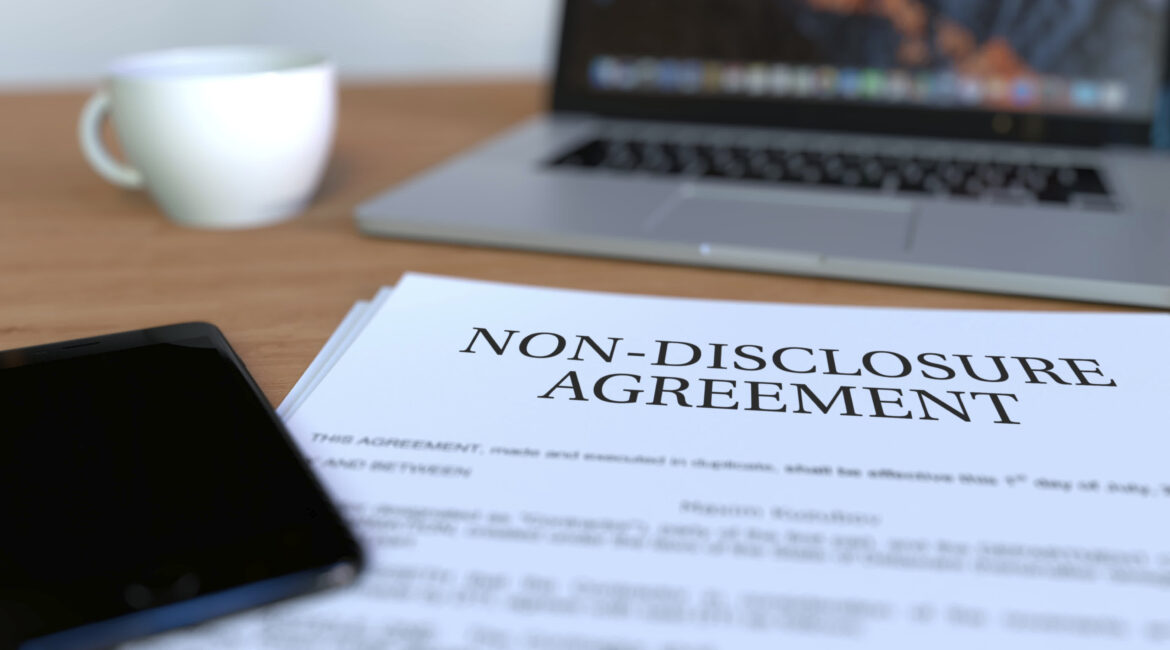A non-disclosure agreement (NDA) is a contract (or a part of a contract) between at least two organisations which governs confidential material, knowledge, or information that the organisations wish to share with one another, but wish to restrict access to, and not disclose the confidential information publicly.
The NDA can also be called a confidentiality agreement (CA), confidential disclosure agreement (CDA), proprietary information agreement (PIA) or secrecy agreement (SA).
The NDA creates a confidential relationship between the parties and is typically used to protect any type of confidential and proprietary information or trade secrets. Like all contracts, the NDA cannot be enforced if the contracted activities are illegal.
NDAs are commonly signed when two companies, individuals, or other entities (such as partnerships, societies, etc.) are considering doing business and need to understand the technology or the processes used in each other’s business for the purpose of evaluating the potential commercial relationships.
An NDA can be “mutual”, meaning all organizations are restricted in their use of the materials provided, or the NDA can be a one-way agreement that restricts the use of material by the receiving party.
NDAs are commonly used to exchange technical information before a patent application is filed by a disclosing party since the exchange of technical information is not a “public disclosure”. However, if the organization receiving the information disclosed the received information either accidentally or abusively, then the information becomes a public disclosure and can be taken into account when assessing the novelty and the inventive step of a patent application. Fortunately, the European Patent Convention (Article 55), and some patent laws in other countries, foresee that the disclosed confidential information in a period up to six months before filing the patent application is not considered to be prior art for the purposes of assessing the invention.
If you need more information about material transfer agreements or require a draft version then please get in touch using this link: contact.

